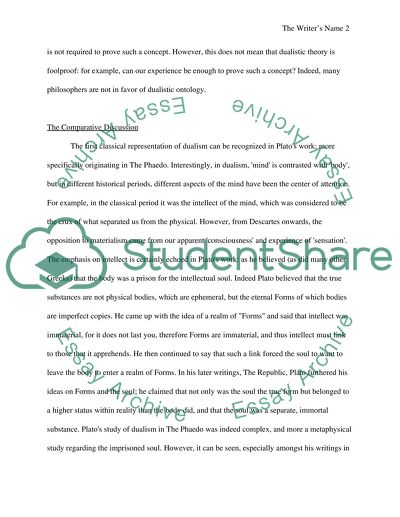Cite this document
(“Forms and Substance Dualism Essay Example | Topics and Well Written Essays - 2000 words”, n.d.)
Retrieved from https://studentshare.org/philosophy/1510284-forms-and-substance-dualism
Retrieved from https://studentshare.org/philosophy/1510284-forms-and-substance-dualism
(Forms and Substance Dualism Essay Example | Topics and Well Written Essays - 2000 Words)
https://studentshare.org/philosophy/1510284-forms-and-substance-dualism.
https://studentshare.org/philosophy/1510284-forms-and-substance-dualism.
“Forms and Substance Dualism Essay Example | Topics and Well Written Essays - 2000 Words”, n.d. https://studentshare.org/philosophy/1510284-forms-and-substance-dualism.


